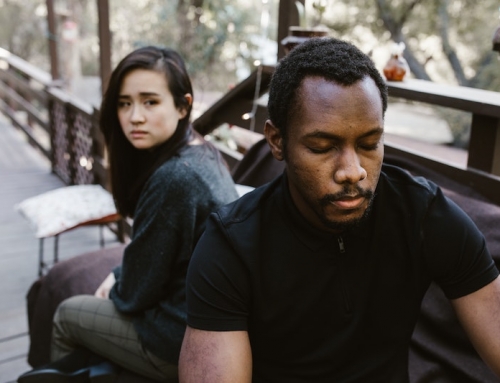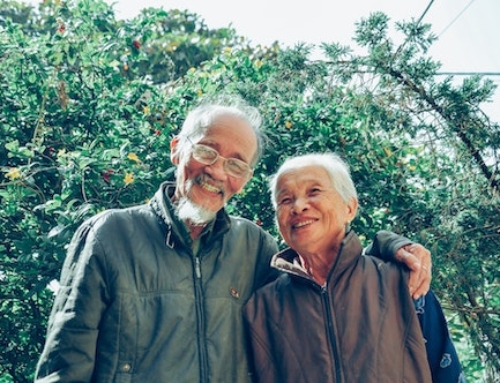Everyone dreads hearing the awful “C” word. For men of a certain age (65 or older) it’s Prostate Cancer that is the most common and the risk increases as men age. If there’s any good news attached to an awful diagnosis, it’s that Prostate Cancer has among the highest survival rate of all. The risk used to be one in three men would be afflicted with Prostate Cancer, not anymore. With awareness comes prevention, and now the risk is one in nine men will be afflicted. If you’re one of those men with Prostate Cancer, you probably don’t care much about these statistics. You’re too busy fighting for your life and future.
Treatment for Prostate Cancer is, (as with all cancer treatment), harsh, invasive, and exhausting. You’re going to need all of your internal fortitude, spiritual strength, and the loving support of friends and family to get through it. Having a spouse or life partner to support you on this journey is a true blessing. If there’s any time when you need your partner to have your back, it’s while you’re undergoing cancer treatment and fighting to survive. This is a disease that impacts the entire family. If your relationship has not been one that vulnerability and sharing authentically has been one of the strengths in your relationship, your partnership can really suffer.
There are so many emotions surrounding cancer, there’s fear of death, worry about your loved ones being taken care of, and how they will be able to carry on when you’re gone. If you beat cancer and survive (the odds are in your favor), how will the experience change your life and relationship? Clearly, life will never be the same. This event can cause you to recognize what is important in life. That is the two of you having each other in your lives If handled correctly your life may change for the better
It’s crucial to your love relationship with your partner that you stay connected before, during, and after treatment. There are going to be a lot of questions in both your minds about how your life will change, and how your physical relationship will survive this ordeal. Bringing your partner with you to your appointments can help get these questions answered for you. There are a lot of resources available to inform you on the nuts and bolts, but the emotional part is uncharted territory. You and your partner are going to have to navigate multiple levels of emotional terrain together. Increased intimacy is the key to renewing a passionate and fulfilling sexual relationship after treatment. Truly being aware that intimacy isn’t just about the sexual relationship, but the kindness, gentleness and letting each other know how much your needs matter really make the difference.
Sexuality will change after treatment for Prostate Cancer. For many survivors, it’s difficult for a man to maintain an erection after a radical prostatectomy and the quality of the orgasm/climax may change. This can be an issue even up to 5 years after surgery. There are pills, injections, suppositories and surgical intervention available to assist with this issue.
More important than the mechanics of sex, is the deepened level of intimacy that you and your partner can cultivate. The more proactive you can be about cultivating this intimacy, the deeper you’re communicating, the better your chances are of a fulfilling and satisfying intimate life.
Begin with more physical intimacy, touching, gestures of affection, communication on a loving and passionate level. Learn to please your partner in other ways, especially if intercourse is off the table.
Emotional intimacy is what leads to loving physical intimacy. There are so many ways to connect with your partner on an emotional level. Treatment may leave you with a lowered libido and physical fatigue. You may have a lot of worry and anxiety about not being able to “perform”. It’s important to remember the true intimacy is not about erections. True intimacy is sharing your vulnerability with each other, sharing your fears and communicating on an authentic level, and showing love and kindness to one another. You both deserve to have a truly close and connected relationship even as your sexual relationship adjusts to the trauma of beating Prostate Cancer.







